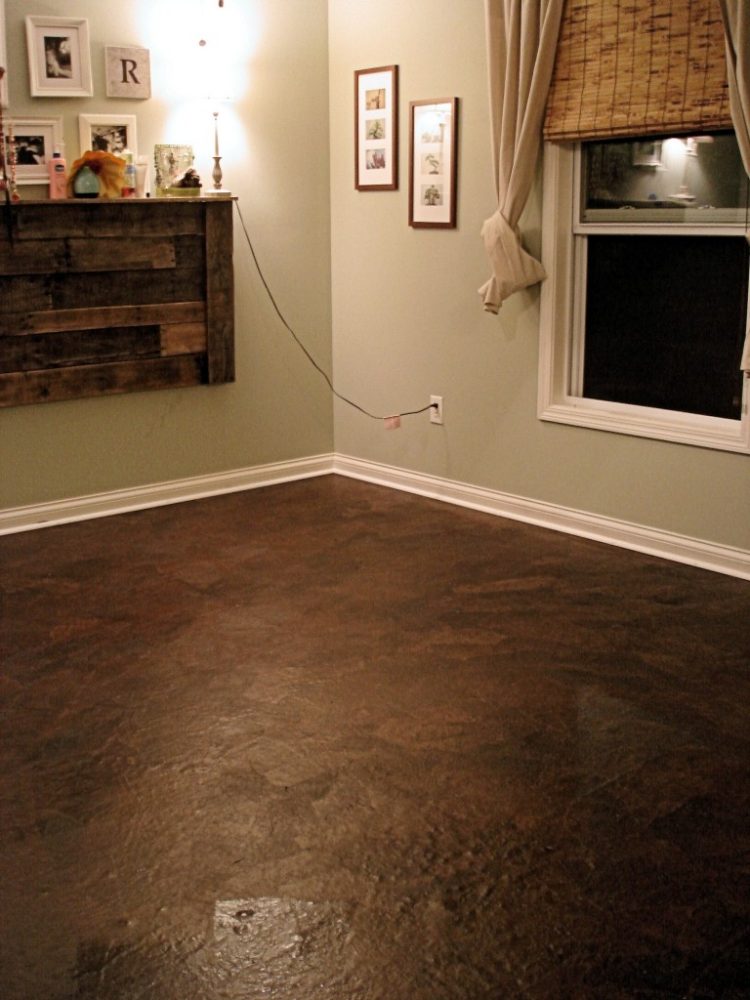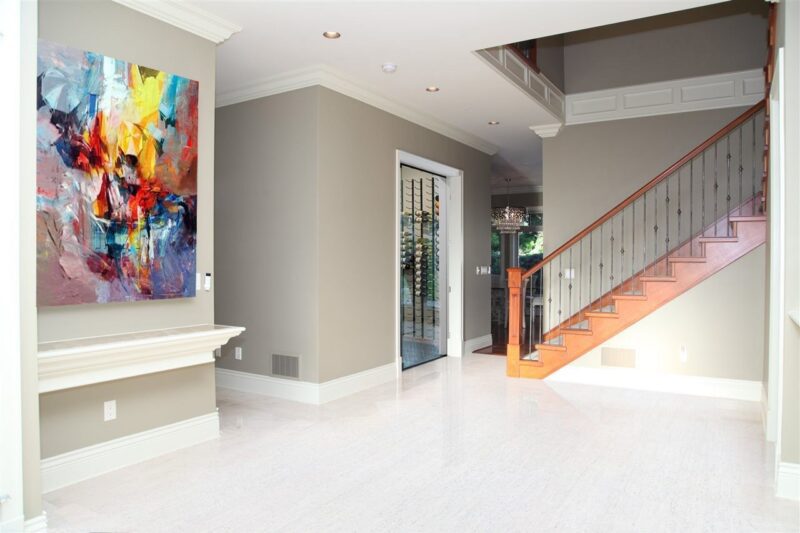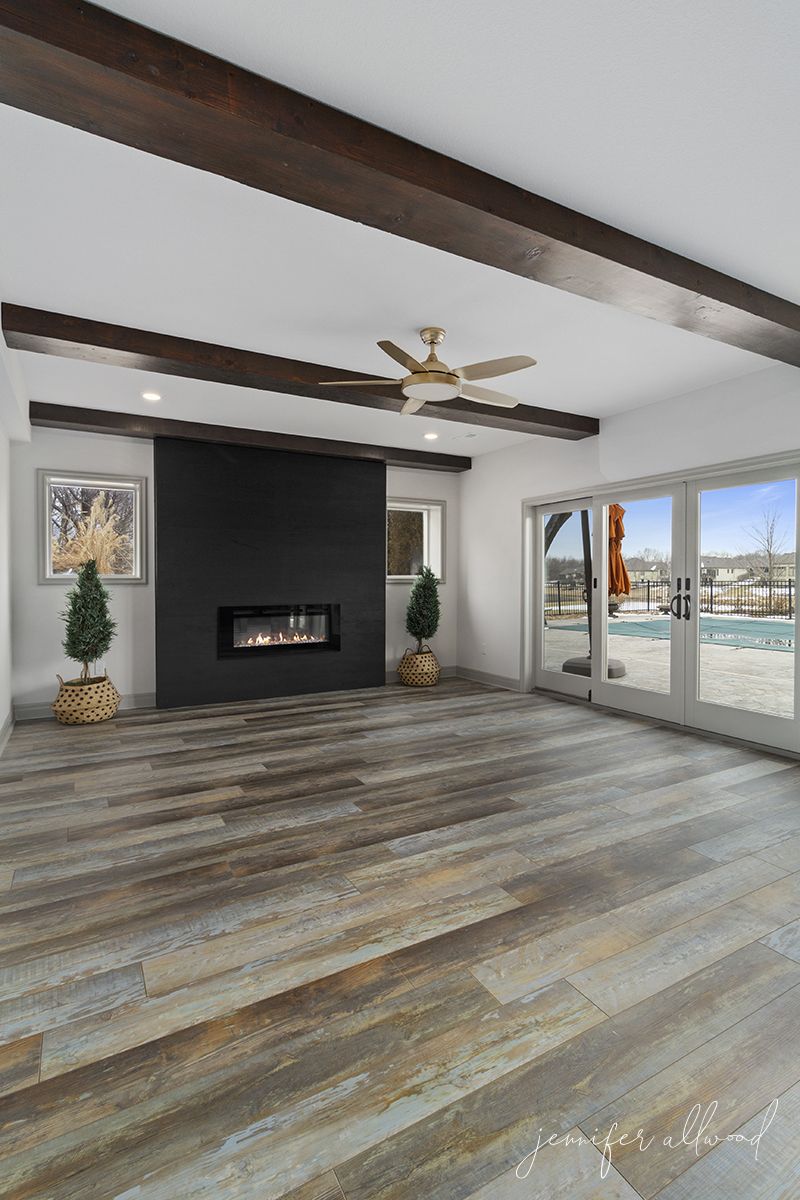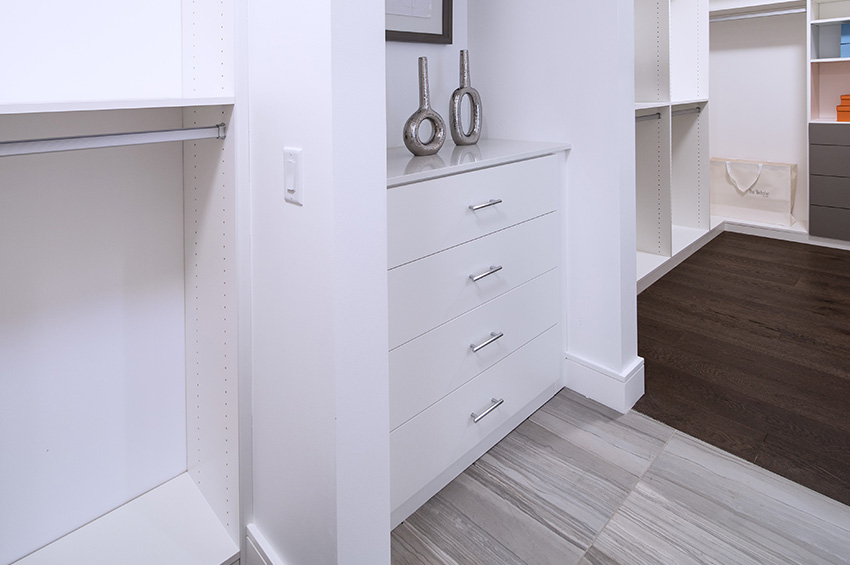Popular Flooring Options for Concrete Basements
Choosing the right flooring for your concrete basement is essential to ensure comfort, durability, and aesthetics. Here are some of the most popular options you can consider:
- Vinyl Flooring: Vinyl flooring is a versatile and popular choice for concrete basements due to its durability and water resistance. Available in sheets, tiles, or planks, vinyl can mimic the appearance of wood, stone, or ceramic, offering a wide range of design options. It is easy to clean, maintain, and install, making it a favorite for DIY enthusiasts. Additionally, vinyl provides a softer and warmer feel underfoot than bare concrete.
- Laminate Flooring: Laminate flooring is another excellent option that offers the aesthetic appeal of hardwood or stone at a more affordable price. Laminate is relatively easy to install with its click-and-lock design, making it a good choice for DIY projects. However, it is less moisture-resistant than vinyl, so it’s crucial to ensure your basement is properly sealed and free from excessive humidity.
- Ceramic Tile Flooring: Ceramic tiles are highly durable and water-resistant, making them suitable for basements that may experience moisture issues. Ceramic tiles can create a sleek and stylish look in various colors, styles, and sizes. The tiles are easy to clean and maintain, but they can be cold and hard underfoot. Adding area rugs can help mitigate this issue and provide some warmth and comfort.
- Carpet Tiles: Carpet tiles are an excellent option for those looking to add warmth and comfort to their basement. They are available in various colors, patterns, and textures, allowing for customizable designs. Carpet tiles are easy to install and replace, making them a practical choice for basements. However, they are less water-resistant, so it’s essential to address any moisture issues before installation.
- Engineered Hardwood Flooring: Engineered hardwood flooring provides the beauty of real wood with added durability and moisture resistance, thanks to its multi-layer construction. It is more stable than solid hardwood in environments with fluctuating humidity levels, such as basements. While more expensive than laminate, engineered hardwood adds a touch of elegance and value to your basement space.
- Epoxy Coating: Epoxy coating is a durable and waterproof flooring option that can be directly applied to the concrete. It creates a seamless, glossy finish that is easy to clean and maintain. Epoxy coatings are highly resistant to stains, chemicals, and abrasions, making them suitable for high-traffic areas. They also come in various colors and designs, allowing you to customize your basement floor.

Factors to Consider When Selecting Basement Flooring
Selecting the right flooring for your basement involves more than just choosing a design you like. Here are key factors to consider:
Moisture Levels
Basements are prone to moisture and humidity, which can significantly impact your flooring choice. It’s essential to choose a flooring material that can withstand moisture without warping, buckling, or developing mold. Vinyl, ceramic tiles, and epoxy coatings are excellent choices for high-moisture areas, while carpet tiles and laminate may require additional moisture barriers.
Durability
Consider the durability of the flooring material, especially if your basement will be a high-traffic area or used for activities like home gyms or workshops. Materials like vinyl, ceramic tiles, and epoxy coatings offer high durability and can withstand heavy use. Engineered hardwood and laminate can also be durable but may not hold up as well under constant wear and tear.
Comfort
Comfort is another important factor, particularly if your basement will be used as a living space or playroom. Carpet tiles and vinyl provide a softer, warmer feel underfoot, making them ideal for comfort. On the other hand, ceramic tiles and epoxy coatings can be cold and hard, so you might need to add area rugs or mats for added comfort.
Aesthetic Appeal
The appearance of your basement flooring can significantly affect the overall look and feel of the space. Choose a flooring option that complements your design preferences and the intended use of the basement. Laminate and engineered hardwood offer the classic look of wood, while vinyl and ceramic tiles provide a wide range of styles and colors to suit any decor.
Installation
The ease of installation can influence your flooring choice, especially if you plan to do it yourself. Vinyl, laminate, and carpet tiles are generally easier to install and can be DIY-friendly. In contrast, ceramic tiles and epoxy coatings may require professional installation to ensure a proper and durable finish.
Budget
Your budget is a crucial factor in deciding which flooring option to choose. Vinyl and laminate are often more affordable, while engineered hardwood and ceramic tiles can be more expensive. Consider the long-term value and durability of the flooring as well, as investing in a higher-quality material may save you money on repairs and replacements in the future.
Pros and Cons of Each Flooring Type
Understanding the pros and cons of each flooring type can help you make an informed decision for your basement. Here’s a detailed look at the most popular options:
Vinyl Flooring
Pros:
- Highly water-resistant, making it ideal for basements.
- Available in various styles, mimicking wood, stone, and tile.
- Durable and easy to clean.
- Relatively easy to install.
Cons:
- Can be prone to scratches and dents.
- Some lower-quality vinyl may off-gas chemicals.
Laminate Flooring
Pros:
- Affordable and offers the look of real wood.
- Easy to install with a click-and-lock system.
- Resistant to scratches and fading.
Cons:
- Less water-resistant compared to other options.
- Can be slippery when wet.
- May require a moisture barrier in damp basements.
Ceramic Tile Flooring
Pros:
- Extremely durable and water-resistant.
- Easy to clean and maintain.
- Available in a wide range of colors and styles.
Cons:
- Cold and hard underfoot.
- Can be challenging to install and may require professional help.
- Grout lines can get dirty and require regular cleaning.
Carpet Tiles
Pros:
- Adds warmth and comfort to the basement.
- Easy to install and replace individual tiles.
- Available in various colors and patterns.
Cons:
- Not very water-resistant, and can harbor mold if exposed to moisture.
- Requires regular vacuuming and maintenance.
- May need a moisture barrier if the basement is damp.
Engineered Hardwood Flooring
Pros:
- Offers the beauty of real wood with added durability.
- More stable in fluctuating humidity levels than solid hardwood.
- Adds value and elegance to the space.
Cons:
- More expensive than laminate and vinyl.
- Requires professional installation.
- Not completely water-resistant, though better than solid hardwood.
Epoxy Coating
Pros:
- Highly durable and water-resistant.
- Creates a seamless, glossy finish that is easy to clean.
- Resistant to stains, chemicals, and abrasions.
Cons:
- Can be slippery when wet.
- Requires professional installation.
- Limited in design options compared to other flooring types.
Installation Tips
Proper installation is crucial to ensure the longevity and performance of your basement flooring. Here are some tips to help you get it right:
Prepare the Concrete Surface
Before installing any flooring, ensure the concrete surface is clean, dry, and level. Remove any existing flooring, debris, and dust. Repair any cracks or uneven areas using a concrete patching compound. A smooth and clean surface is essential for proper adhesion and a smooth finish.
Use a Moisture Barrier
For basement floors, it’s vital to use a moisture barrier to prevent moisture from seeping through the concrete and damaging the flooring. This is particularly important for materials like laminate, engineered hardwood, and carpet tiles. A plastic sheet or a specialized underlayment can serve as an effective moisture barrier.
Choose the Right Adhesive
If your flooring choice requires adhesive, make sure to select one that is suitable for basement conditions. Epoxy adhesives are excellent for high-moisture environments and provide strong bonding. Always follow the manufacturer’s recommendations for adhesive use to ensure proper installation and longevity.
Allow for Expansion
Materials like laminate and engineered hardwood need space to expand and contract with temperature and humidity changes. Leave a small gap (usually about 1/4 inch) around the perimeter of the room to allow for this movement. This gap can be covered with baseboards or moldings to maintain a clean look.
Follow the Manufacturer’s Guidelines
Each flooring type and brand may have specific installation guidelines. It is crucial to read and follow these instructions carefully to avoid mistakes that could compromise the flooring’s performance. Manufacturers often provide detailed step-by-step guides and videos to assist with the installation process.
Consider Professional Installation
For more complex flooring options like ceramic tiles and epoxy coatings, professional installation might be the best choice. Professionals have the experience and tools needed to ensure a flawless finish. While it may be more expensive, professional installation can save you time and potential headaches in the long run.
Maintenance and Care
Proper maintenance and care are essential to keep your basement flooring looking good and performing well over time. Here are some tips for different types of flooring:
Vinyl Flooring
Regular Cleaning: Sweep or vacuum regularly to remove dirt and debris. Use a damp mop with a mild cleaner for deeper cleaning. Prevent Scratches: Place felt pads under furniture legs to prevent scratches. Avoid dragging heavy objects across the floor. Avoid Excess Moisture: Although vinyl is water-resistant, avoid excessive moisture. Wipe up spills promptly and ensure the basement is well-ventilated to prevent mold growth.
Laminate Flooring
Regular Cleaning: Sweep or vacuum frequently to keep dirt and dust at bay. Use a damp mop with a laminate-specific cleaner for occasional deeper cleaning. Protect from Moisture: Use a damp (not wet) mop and avoid using excessive water. Ensure spills are wiped up immediately. Prevent Damage: Use protective pads under furniture and avoid walking on the floor with high heels or cleats to prevent scratches and dents.
Ceramic Tile Flooring
Regular Cleaning: Sweep or vacuum regularly to remove dirt. Use a mop with a mild detergent for cleaning. Grout Maintenance: Clean grout lines with a mixture of baking soda and water or a grout cleaner. Sealing the grout can prevent stains and make cleaning easier. Prevent Chipping: Avoid dropping heavy objects on the tiles to prevent chipping and cracking. Use rugs or mats in high-traffic areas.
Carpet Tiles
Regular Vacuuming: Vacuum frequently to remove dirt and dust. Carpet tiles trap dust and allergens, so regular cleaning is essential. Spot Cleaning: Address spills and stains immediately with a carpet cleaner. For stubborn stains, individual tiles can be replaced easily. Prevent Moisture Issues: Use a dehumidifier to keep the basement dry and prevent mold growth under the carpet tiles.
Engineered Hardwood Flooring
Regular Cleaning: Sweep or vacuum regularly to remove dirt and prevent scratches. Use a damp mop with a hardwood-specific cleaner for deeper cleaning. Humidity Control: Maintain consistent humidity levels in the basement to prevent the wood from expanding or contracting excessively. Protect from Scratches: Use rugs in high-traffic areas and felt pads under furniture legs to protect the floor from scratches.
Epoxy Coating
Regular Cleaning: Sweep or vacuum regularly to remove dirt and debris. Mop with a mild detergent and water for thorough cleaning. Prevent Stains: Wipe up spills immediately to prevent staining. Epoxy is resistant to many chemicals, but prompt cleaning is still recommended. Avoid Abrasives: Avoid using abrasive cleaners or pads that could scratch the epoxy surface. Use soft cloths or mops for cleaning.
Best Basement Flooring – The Warmest Basement Floor Covering Is Cork
DIY Basement Flooring Ideas – Affordable DIY Flooring Options
What’s the Best Flooring for a Cement Basement Floor?
Basement Flooring Ideas (Best Design Options) – Designing Idea
Related Posts:



.jpg?widthu003d800u0026nameu003d11513489635_f12521f2a2_k%20(1).jpg)



